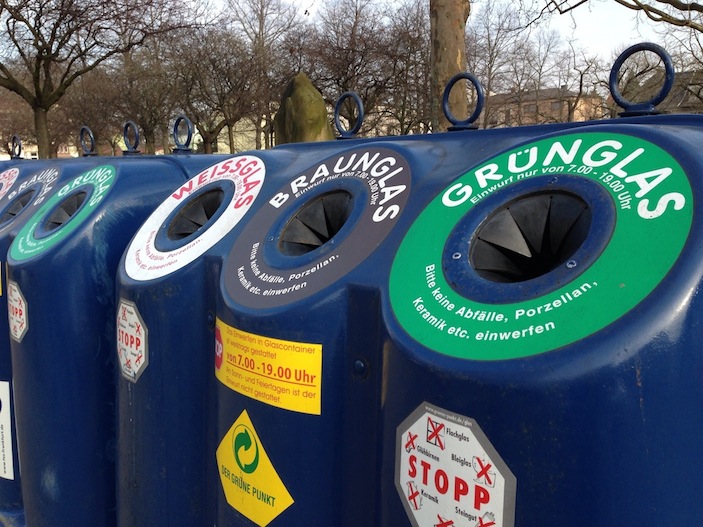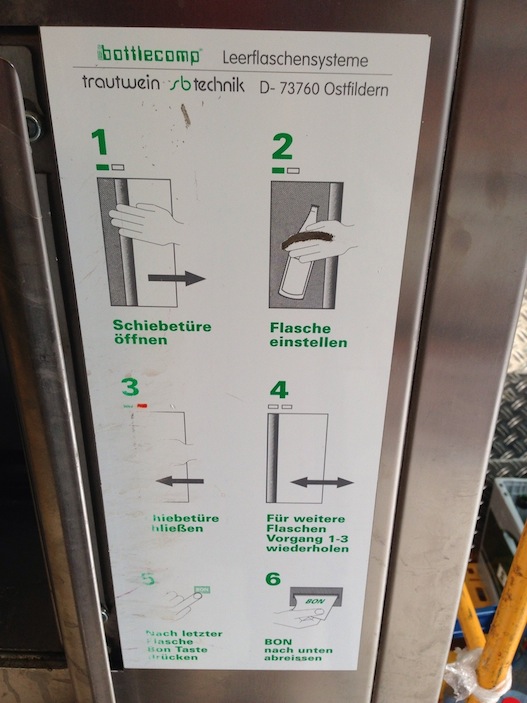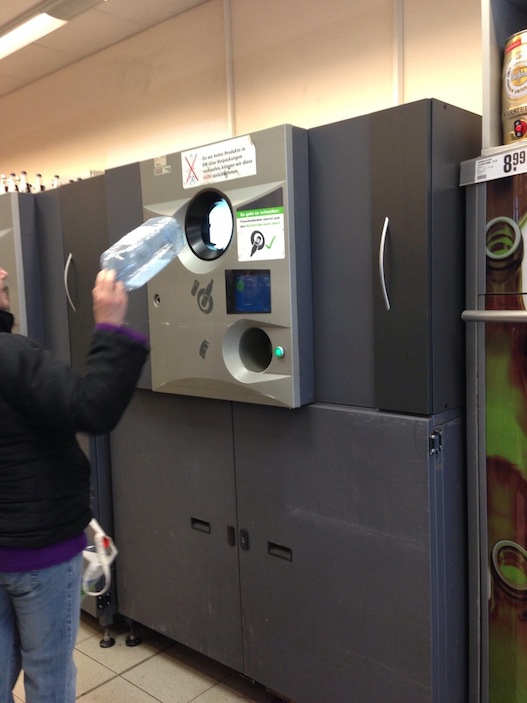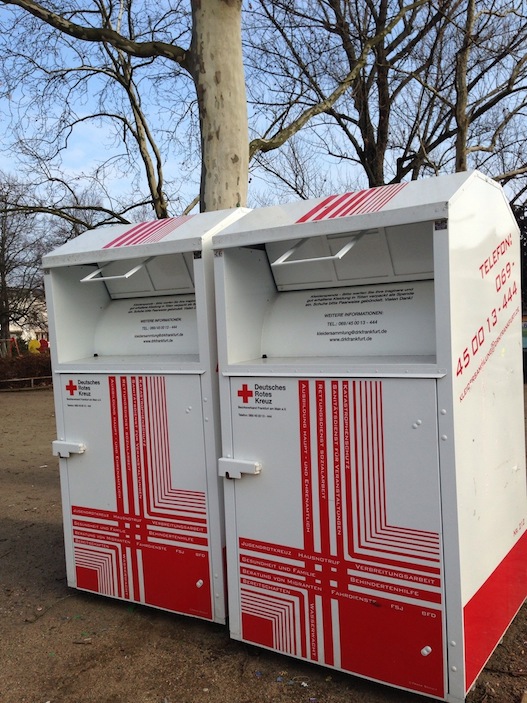IDfrankfurt: Party!
Here’s a little tribute to last month’s post about clubbing in Germany…
The Complicated Art of Disposal
Germans are earth-conscious. They recycle…a lot. And that’s good. What’s not so good, however, is the process of figuring out exactly how to abide by the strict recycling guidelines if you aren’t from here.
Being one of the world’s pioneers in recycling, Germans have it down to a science—evident in the many colors of bins you’ll see for recycling throughout any city you walk through. One for plastic, one for metal, one for tin, one for a different kind of plastic, one for green-tinted glass, one for yellow-brown tinted glass, one for clear glass, one for paper, one for…it can be quite a confusing ordeal. And with the army of recycling men running around collecting and managing these things, not to mention the “observant” locals not-so-subtly shaking their head at your ignorance as you make your bin selection, quite an intimidating one too!
And that’s just at the park. Let’s not forget the refund machines in many supermarkets that collect certain types of glass bottles for some money back. You have to look for a particular logo on your bottle, and if it’s not there, no matter how much all the glass may seem alike, you won’t get your 50 cents for it. But more importantly, you’ll draw the ire of the people lined up behind you, who just lugged 10 kilos worth of bottles to the store to walk away with their euros!
I’m glad the Germans are this way—we should all learn from their example. But perhaps a tutorial on the flight over would make life a little easier for all of us :).
IDköln: Up, Down, S + U
IDfrankfurt: Caipirinha!
In honor of today’s IDbrasil post advocating cachaça for the global recognition it should have, here’s a piece of art from the country that sucks down the majority of the (mere 1%) of cachaça that is exported from Brasil…
IDfrankfurt: Sad Penguin
Clubbing in Germany: Until Noon, Anyone?
Given the surface level appearance of the typical German, the last thing I expected to encounter here was a world-class club scene. Yet it doesn’t take long to realize that this country is much more than massive festival halls and beer gardens. Berlin has gained notoriety around the globe for its until-the-next-day brand of clubbing, while Hamburg and Munich have a thriving scene as well.
The legal age limit for clubbing here is 18, but many clubs allow 16 or 17 year olds in until midnight. This of course extends beyond midnight in many places where enforcement is minimal, but the top clubs in major cities typically have pretty strict ID checks.
In general, though, you should come with an open mind and open eyelids, because the clubs here—which range from office towers to converted power stations—often stay open until noon. So none of this “wee hours of the morning” stuff—here, they go hard until the next day. And while techno and dubstep still rule the scene, the variety of clubs have grown with their popularity, so whatever you’re looking for, you’ll be able to find. Ask around, as the hottest spots are always changing.
IDmunich: Cafe Munich
Germans Are On Time…Except When They’re Not
Germans are sticklers for time. This, you can tell, by the prevalence of clocks everywhere. No matter where you walk, it’s likely you’ll see a clock proudly displaying its hands as if to say: “Be on time!” This is a mantra Germans live by, except, of course, when they don’t.
See, the whole idea you may have about Germans and timeliness is likely to be shattered within a few days of being here. Culturally, it’s safe to say that people still generally keep appointments punctual; if it’s a business meeting, this is especially important. But unlike Japan, where people are on time but so are trains and other services, Germany hasn’t quite followed suit.
I’ve taken Deutsche Bahn trains several times to connect between cities here, and I don’t think I’ve arrived at my scheduled time yet. Granted, it’s not likely you’ll get to your destination too late—delays of 20 or 30 minutes are the norm—but it was certainly counter to what I expected upon arriving here. In the case of the trains, a comedy of errors have been the culprit for DB in recent years, ranging from axel problems to lax track maintenance to disgruntled employees.
Don’t get me wrong—I’m not advising you to come here and ignore any concept of punctuality. I just think that it’s about time Germans reconsider the seemingly national sense of pride they display in regards to timeliness, as these days it is more myth than reality.
.jpg)



















